WELCOME TO
PROFESSIONAL
TRAINING
COLLEGE
in JAPAN
SCROLL
Professional Training
Colleges in Japan
日本の専門学校
Studying at a professional training college leads directly to a professional career
Professional training colleges in Japan are institutions of higher education and offer practical vocational training.Aimed at helping people acquire the knowledge, techniques and skills necessary for jobs and life and to improve their general education, professional training colleges can be divided into many different fields, such as medical care, technology, culture and general education, business, personal care and nutrition, education and welfare, fashion and home economics and agriculture.
Professional training colleges are regarded as institutions of higher education, just like universities and two-year colleges, and offer vocational training in Japan at the stage of higher education. Currently, students who have completed a program such as studying for two or more years(i.e., at least 1,700 hours of classes) at a professional training college receive a Diploma, whereas those who have competed a program such as studying for four years or more(i.e., at least 3,400 hours of classes) receive an Advanced Diploma. Students with Diploma allowed to transfer to a university, and students with Advanced Diploma may enroll in a graduate school.
Download PDF
Advantages of
Professional Training
Colleges
専門学校の特長
The biggest advantage of studying at a Japanese professional training college is the direct path to a professional career.Professional training colleges are designed for students to acquire an advanced specialty in any field. Today, they play an important role as higher educational institutions, just like universities do.
 Very beneficial for finding a job, and also allow you to transfer to a
university
Very beneficial for finding a job, and also allow you to transfer to a
university
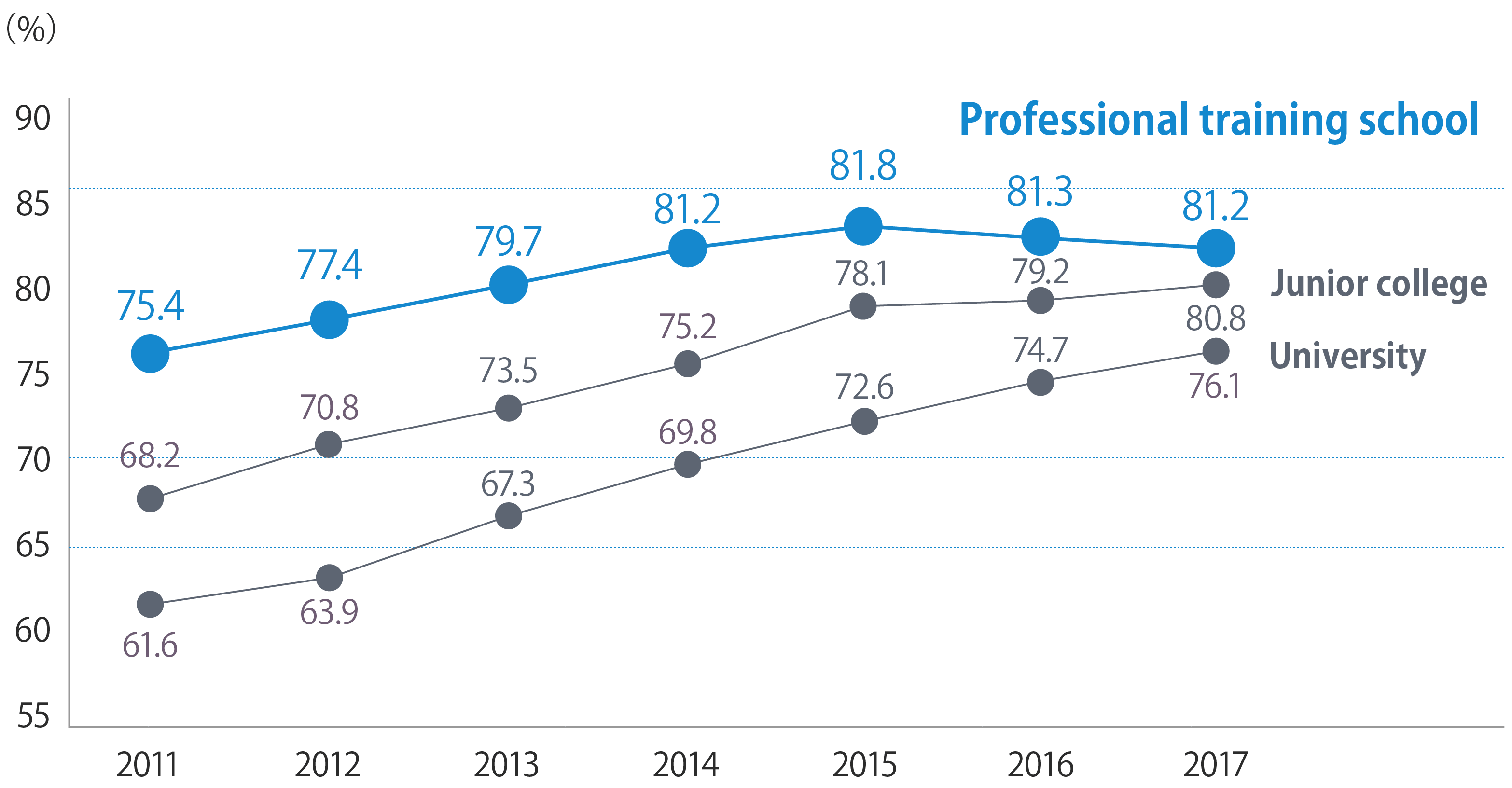
 The opportunity to learn specialized skills and knowledge that can be
applied anywhere in the world
The opportunity to learn specialized skills and knowledge that can be
applied anywhere in the world

 Excellent environments, facilities and equipment
Excellent environments, facilities and equipment

Living in Japan 日本での生活
In Japan, professional training colleges as well as the government, educational institutions, private enterprises and many other institutions are willing to accept foreign students. A high level of security ensures that you always feel safe. Japanese traditional culture has attracted attention internationally. Japan also has modern cities and nature-rich environments. Here, you have everything you need to ensure that you will be very satisfied when studying abroad.
-
 The highest level of security in the world
The highest level of security in the world
-
 Wide availability of dormitories and apartments
Wide availability of dormitories and apartments
-
 Exposure to Japanese traditions and culture
Exposure to Japanese traditions and culture
-
 Professional training colleges expand future prospects
Professional training colleges expand future prospects
-
 Japan ensures that foreign students are very satisfied
Japan ensures that foreign students are very satisfied
Your impressions of Japanese people after coming to this country Got better Got worse Neither better nor worse I don’t know Total Number of people 2,756 595 2,585 100 6,036 Percentage 45.6% 9.9% 42.8% 1.7% 100% Your overall impression of studying in Japan Got better Got worse Neither better nor worse I don’t know Total Number of people 5,480 67 467 22 6,036 Percentage 90.8% 1.1% 7.7% 40% 100% School expenses (amount paid in the first year) Tuition etc. 471,000~1,109,000 Entrance fee etc. 96,000~403,000 Total (YEN) 814,000~1,724,000 Total (US$) 8,140~17,240 - *Average amount for daytime classes (data provided by the Metropolitan Tokyo Professional Institution Association)
- *The above expenses may vary among fields
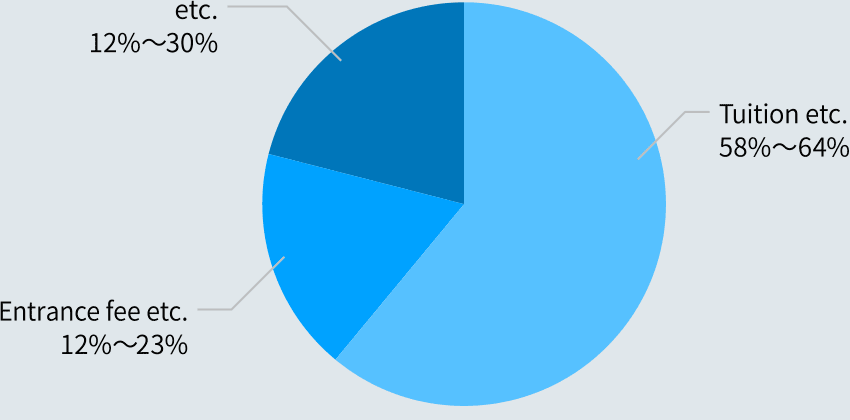
Part-time jobs
According to a survey by JASSO, nearly 83% of foreign students of professional training colleges have a part-time job. Restaurant-related jobs are the most common, followed by sales, teaching/research assistant and hotel staff/hall staff, among others. The hourly wage ranges from 800 yen to 1,200 yen for a restaurant job, with some differences between jobs and regions. If you work 28 hours a week, the maximum weekly working hours provided by the law, you will make almost 80,000 to 120,000 yen a month. To work part time, you must obtain from the nearest Immigration Bureau or equivalent permission to engage in activities other than those permitted, and attest to the following:
- That the part-time job will not hinder your studies.
- That the part-time job is to supplement your school expenses and/or other necessary expenses, and is not for savings or for sending money home.1.
- That the part-time job does not involve the sex industry.
- That you will not work more than 28 hours a week.
- That the part-time job is allowed only during the period of your enrollment in the training institution.
Interviews インタビュー

-
Having opportunities to experience Japanese culture and service makes studying in Japan attractive.
- Overseas
- Go on to professional training school
- Transfer to university

-
Learn programming while aggressively pursuing linguistic qualifications.
- Japanese language school
- Go on to professional training school

-
Understanding Japanese culture also helped me get a job.
- Overseas
- Go on to professional training school
- Find a job in Japan

-
Aspiring to become a fashion designer, studying Japanese language before entering a professional training school.
- Overseas
- Enter from a Japanese-language education institution in Japan
- Go on to professional training school
Post-graduation Career
and Job Search
卒業後の進路、就職
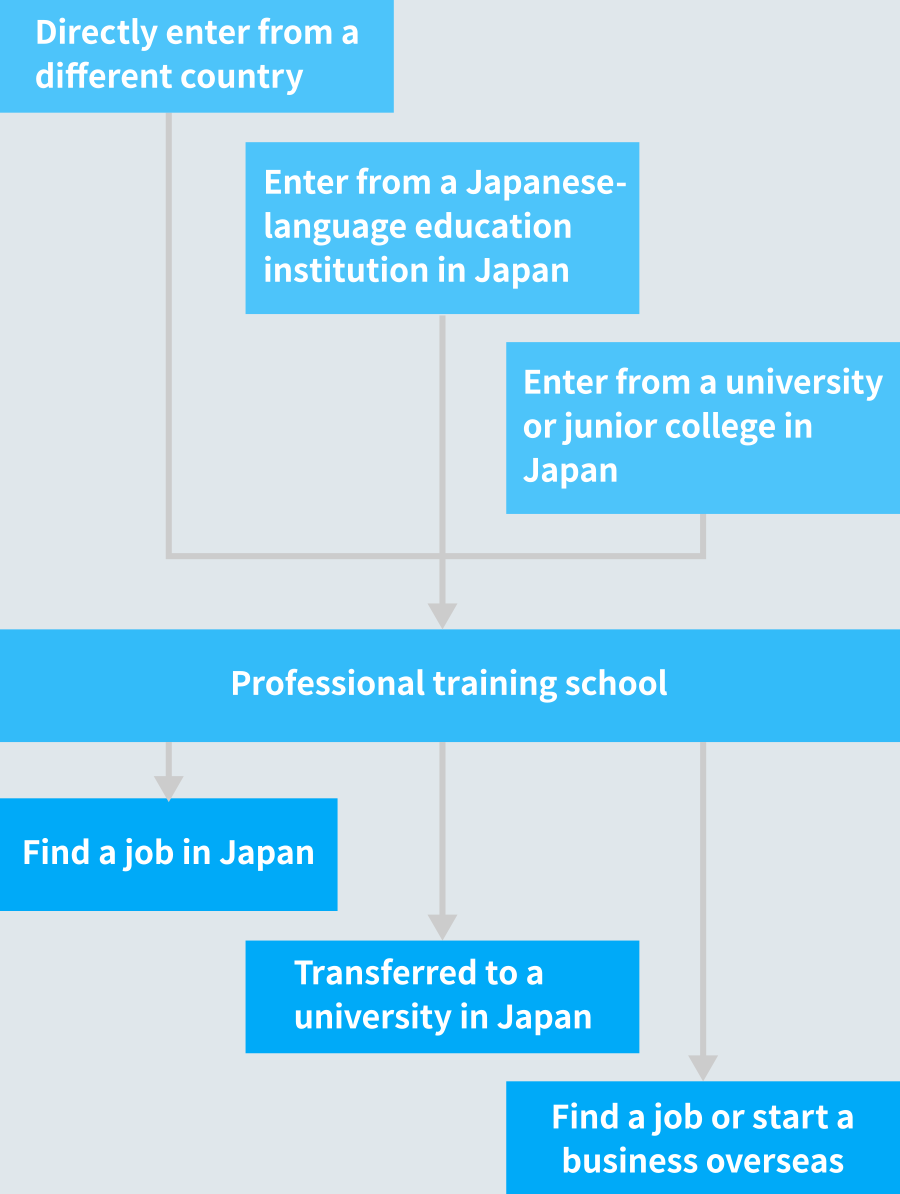
Many different ways to enroll and expand your career options

Want to fully utilize your talent? (Culture and General Education, Personal Care and Nutrition, Fashion and Home Economics)
Want a job related to fashion, cosmetology or cooking? Want to utilize your talent in music, design or language? A professional training college will help you to cultivate your tastes and talent so you can acquire more skills and knowledge.
- Cosmetology
- Design
- Cooking, confectionery making and breadmaking
- Music
- Language
- Animals
- Fashion
- Film and broadcasting
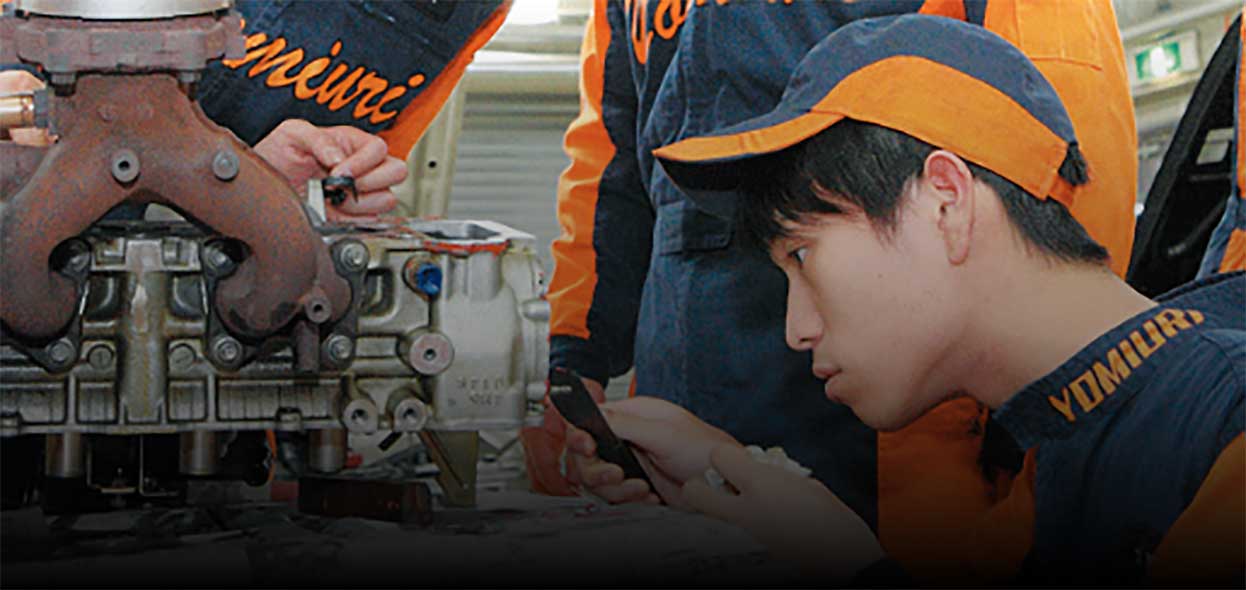
Want a job making something? (Technology, Agriculture)
Love cars? Want make robots? This group of fields is good for anyone interested in electricity, engineering or agriculture. The latest kinds of training are available, allowing you to learn the most advanced skills and pursue a practical career in manufacturing.
- Information processing
- Automobile mechanics
- Civil engineering and architecture
- Electricity and electronics
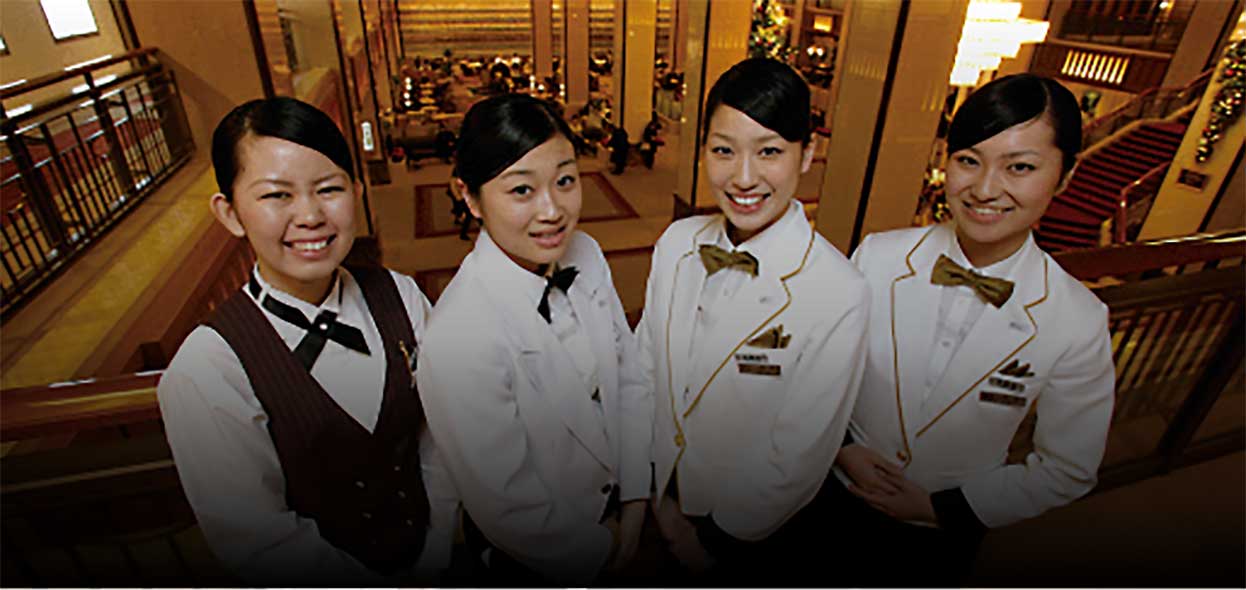
Want to be a business professional? (Business)
Acquire the latest knowledge in information technology or accounting, taught with the aim of developing many types of human resources, responsive to today’s economies. As a business professional, a graduate from a professional training college will find job opportunities at any company.
- Business
- Travel and tourism
- Accounting and bookkeeping
- Information
- Commerce
- Management
- Secretarial

Want to help others? (Medical Care, Education and Welfare)
Want to help other people? Want to work in the medical care or nursing care field? A professional training college gives you the specialized knowledge and skills necessary for these professions and helps you acquire a qualification, while also aiming to foster your sense of responsibility and enrich your sprit.
- Nursing
- Physical/occupational therapy
- Dental hygiene
- Judo therapy
- Care welfare

